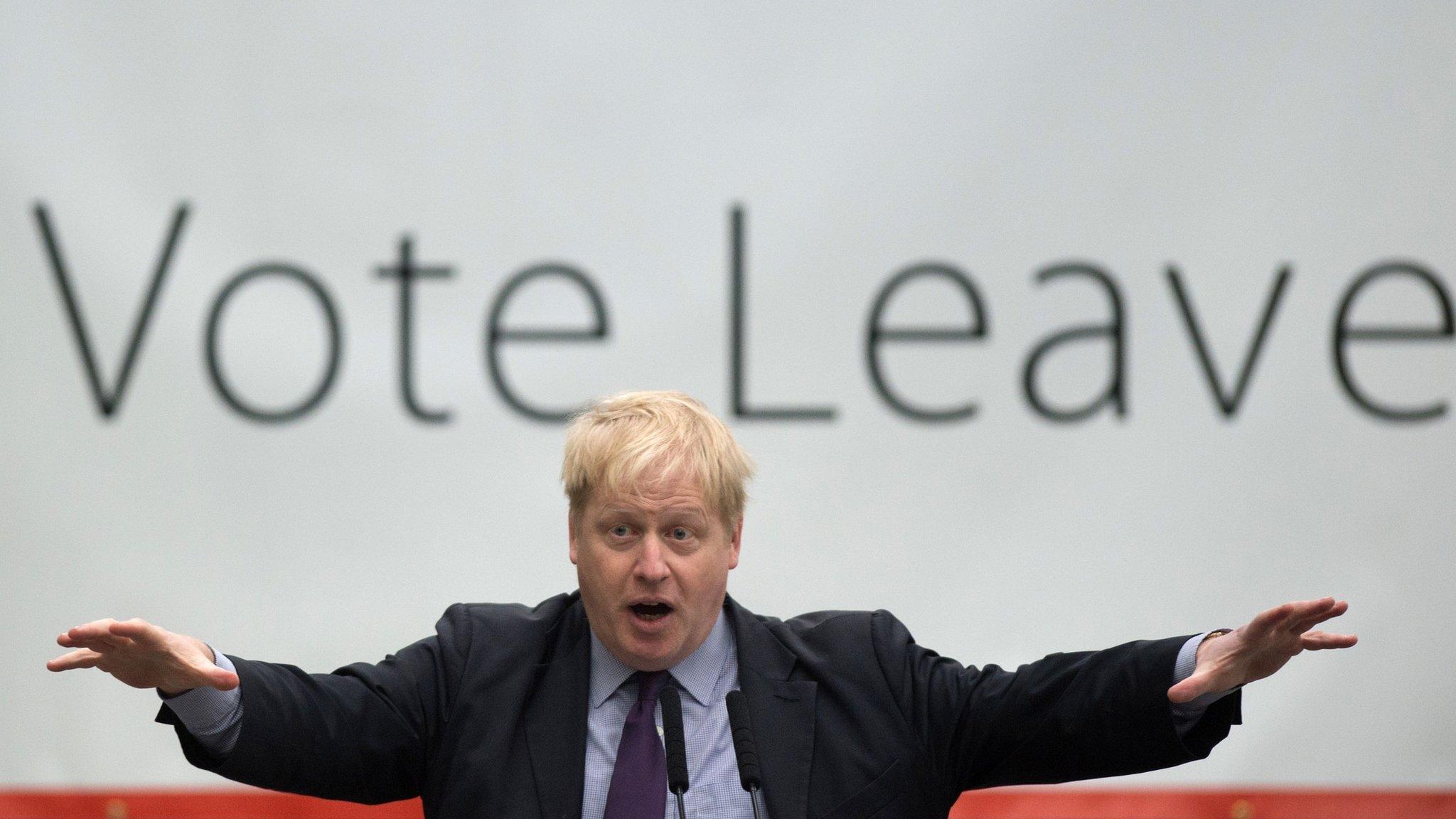'Why the time is right for Brexit origins story'
- Published
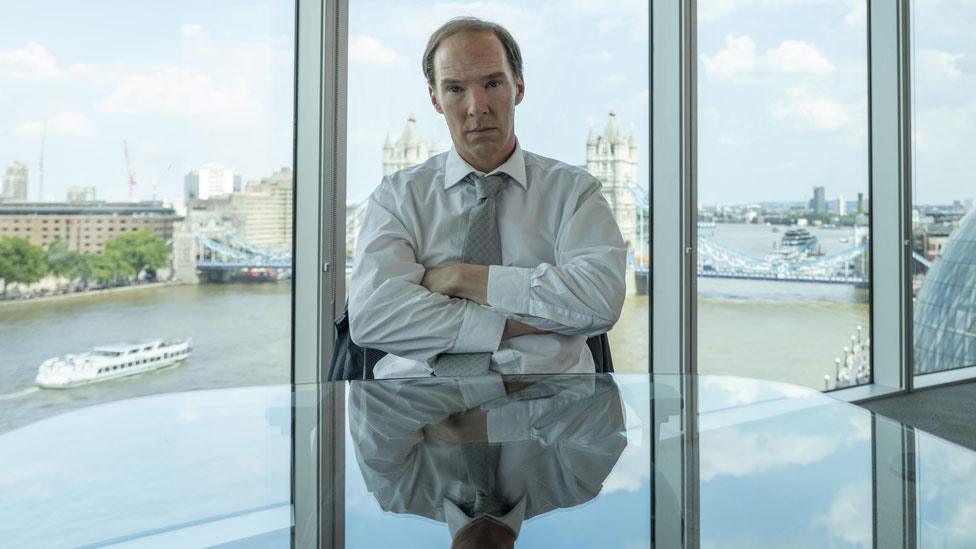
Benedict Cumberbatch plays a lesser-known figure in the referendum story
Britain's exit from the EU has rarely been out of the headlines since the country made the historic decision to go it alone in 2016.
Every day brings new developments, new stumbling blocks and ever more heated debate about what has become one of the most contentious issues the country has ever faced.
Given how utterly Brexit dominates our news bulletins, newspapers and public discourse, a fictionalised drama about the EU referendum might seem surplus to requirements.
Yet the writer of Brexit: The Uncivil War, a Channel 4 film about how the Vote Leave campaign emerged triumphant, insists drama has a vital part to play in comprehending the situation in which we now find ourselves.
"We're all constantly surprised by the chaos and the carnage," says James Graham, award-winning author of Labour of Love, Ink and other acclaimed plays.
"The function of this drama is to contribute to our understanding of the origins of that.
"A news bulletin or Twitter feed doesn't satisfy on that level," he continues. "It's relentless, it's exhausting and it never pauses.
"Drama allows for a pause, a perspective and a longer view. We're in the woods at the moment so we need that."
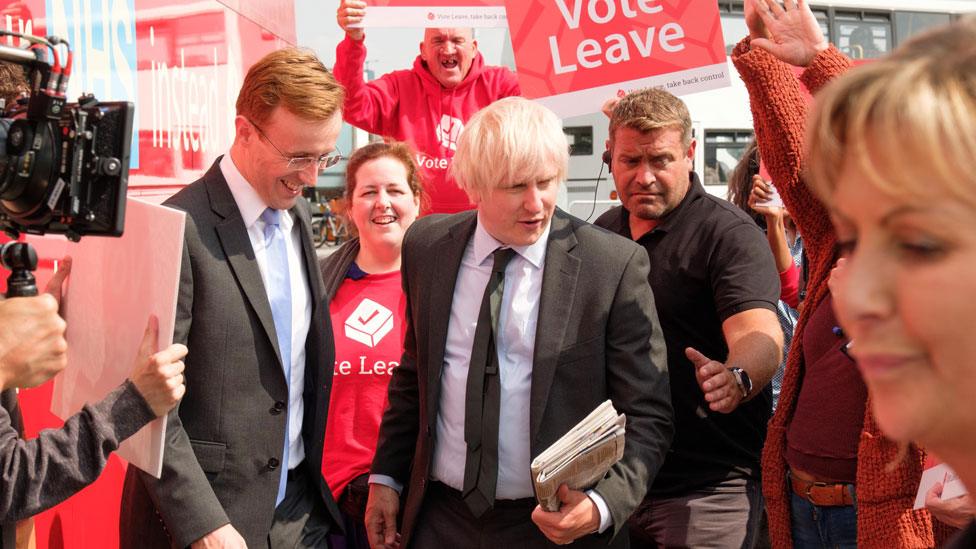
Richard Goulding (centre) plays Boris Johnson, who came out in favour of the Leave campaign
Thanks to the likes of Boris Johnson, Nigel Farage and former Prime Minster David Cameron, any film on this subject does not want for larger-than-life characters.
Yet Graham chose to focus on one of its lesser-known participants - Dominic Cummings, the man who masterminded the Vote Leave campaign.
"In any great play or film, the central protagonist has to be quite surprising," he explains. "Often they're transgressors and quite disruptive.
"We're familiar with Cameron and Johnson and Farage, but a mainstream audience won't have heard of Dominic Cummings.
"If you're going to interrogate the decisions made and who was responsible for them, it felt right to put the strategists behind the scenes into the spotlight."
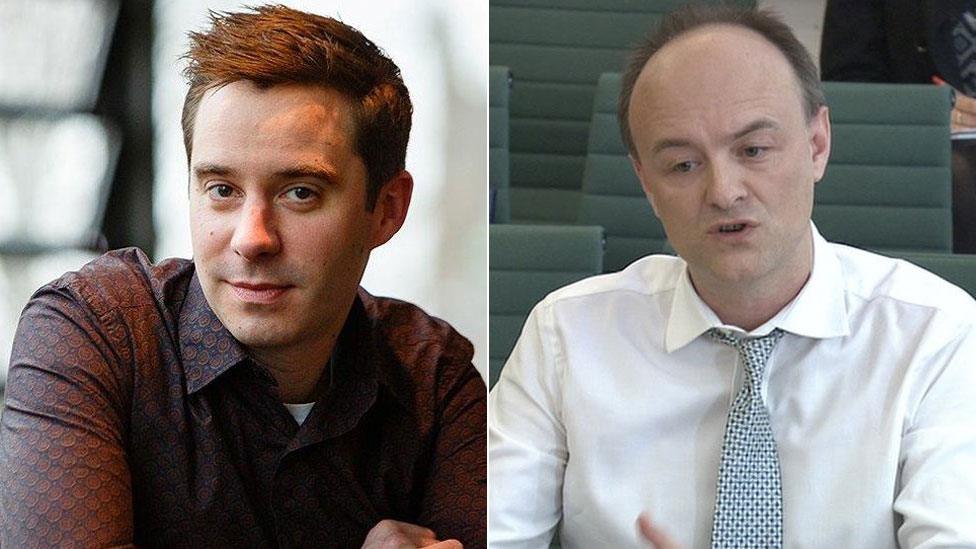
Graham met with Cummings, seen right in April 2016, before filming began
Played by Benedict Cumberbatch, the Cummings seen in The Uncivil War is an intellectual contrarian with little truck for conventional thinking.
Speaking to The Spectator earlier this month, external, the Sherlock star described Cummings - a former advisor to Michael Gove - as "a hell of a role" and that he had felt "a responsibility to get him right".
Over the course of the drama, Cummings is seen out-thinking and outwitting the Remain campaign with sophisticated data-mining techniques and a central slogan - "Take Back Control" - that cuts through to voters.
Graham says the message, while "relatively simplistic... captured the national mood" in a way that Remain's - "Britain Stronger in Europe" - did not.
"It was an easy and digestible message that captured a broad coalition of anger, doubt and frustration," he goes on.
"Even the Remain side would admit they couldn't come up with an equivalent."
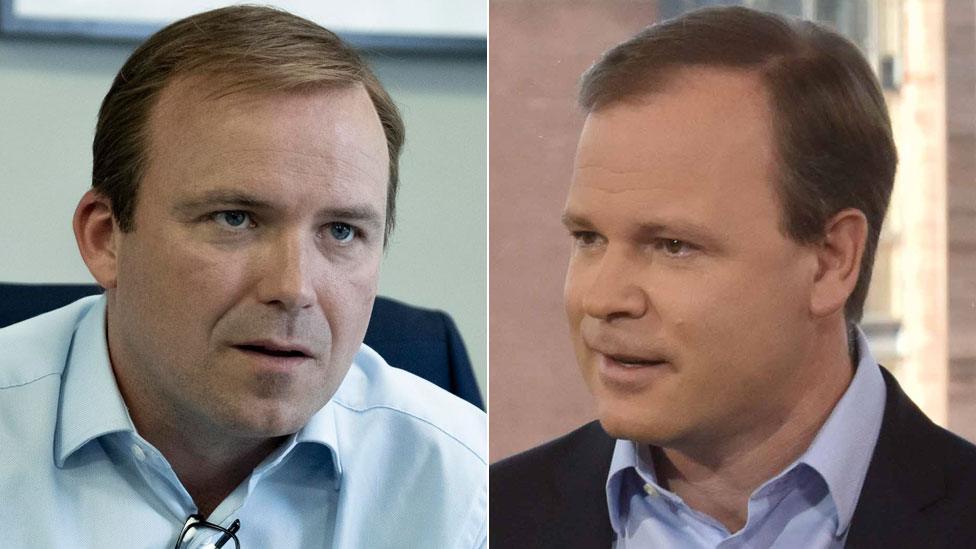
Rory Kinnear plays Craig Oliver, who wrote a book about the referendum campaign
The Remain side is represented by Craig Oliver, Cameron's communications director, whose bullishness and optimism is soon overtaken by exasperation and unease.
One amusing scene sees Oliver - played by Rory Kinnear - try to conduct a conference call with Cameron and Peter Mandelson while preparing dinner for his children.
"The scene in the kitchen felt like a good opportunity to show how work and family life converge," says Graham.
"It just so happens his work was to try and save the country from what he thought would be a disastrous outcome while making fish fingers."
Additional humour derives from its portrayals of Johnson, Farage and Ukip donor Arron Banks, whom Graham calls "big personalities who don't quite exist in the same reality as the rest of us".
"There was latitude there to exaggerate their eccentric qualities in the great British tradition of satire," he explains.
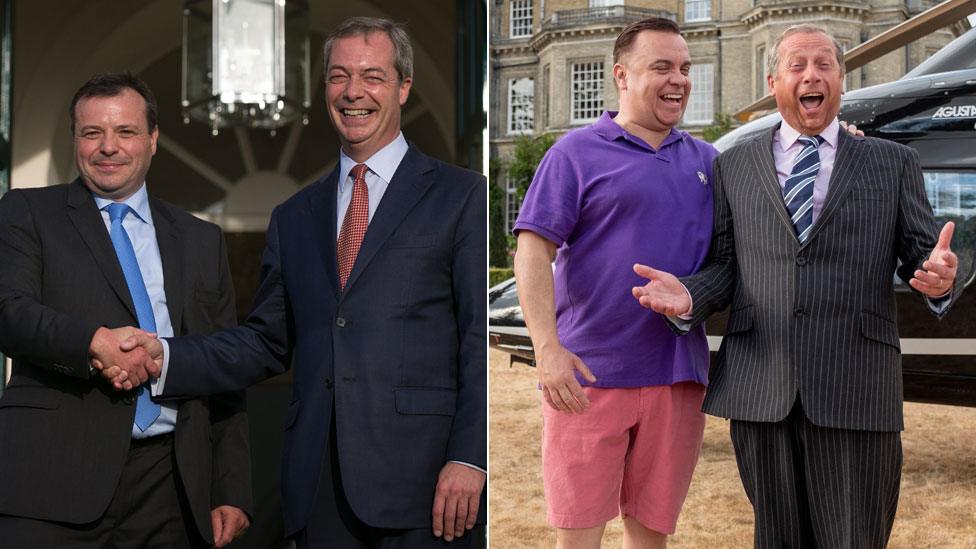
Arron Banks (left) and Nigel Farage are played by Lee Boardman and Paul Ryan
The film also features Vote Leave's (in)famous red bus, which featured the controversial claim that leaving the EU could boost the NHS by £350m a week.
Yet the mood of the piece darkens with the shocking news that MP Jo Cox has been murdered in West Yorkshire - an episode Graham felt his film "had to represent".
"Obviously we had many long conversations about whether and how it should be included," says the playwright.
"We made sure we did all the right things in terms of letting the family know and speaking to people about their memories at that time."
Graham admits he worries that "Brexit fatigue" may deter some viewers, but hopes the involvement of Cumberbatch and Kinnear will win over doubters.
"I want my mum in Mansfield to watch and enjoy this, and having them in it will help it reach a popular audience," he explains.
"People ask if it's responsible to do a drama like this when we're at the epicentre of the debate," he continues.
"I feel it has to be done now, not in 10 years when it's no longer useful or relevant."
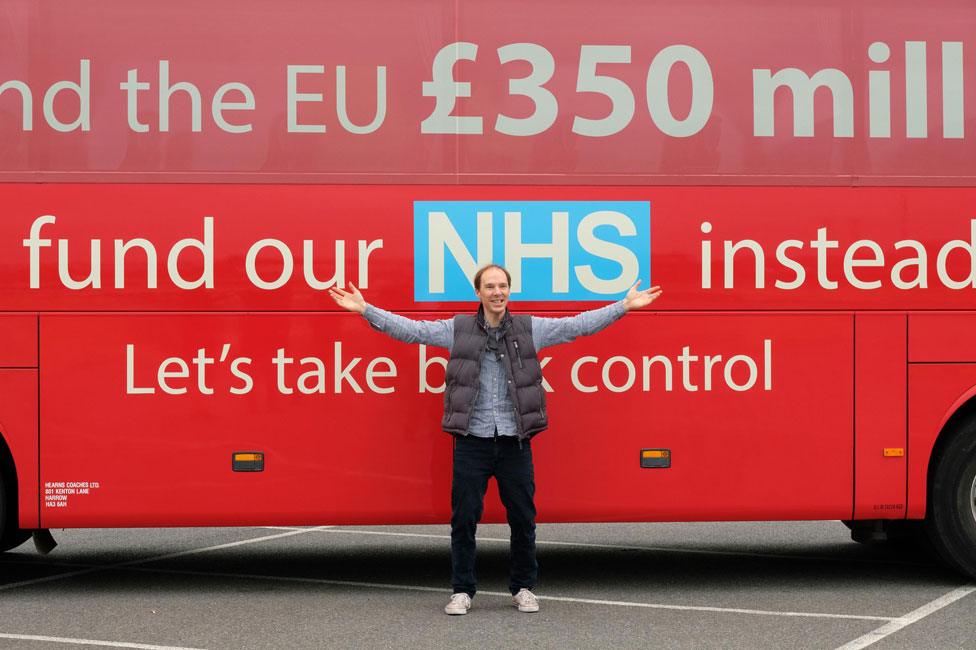
The drama also features Vote Leave's controversial referendum bus
For all that, the playwright does not presume his work presents "the defining version of history", insisting it is more of an invitation to other dramatists to "take the baton".
"I feel lucky we're one of the first out of the gate willing and possibly stupid enough to do this, but there will be many other versions," he says.
"This is just the opening gambit."
Brexit: The Uncivil War will be shown on Channel 4 on 7 January at 21:00 GMT.

Follow us on Facebook, external, on Twitter @BBCNewsEnts, external, or on Instagram at bbcnewsents, external. If you have a story suggestion email entertainment.news@bbc.co.uk, external.
- Published24 May 2018
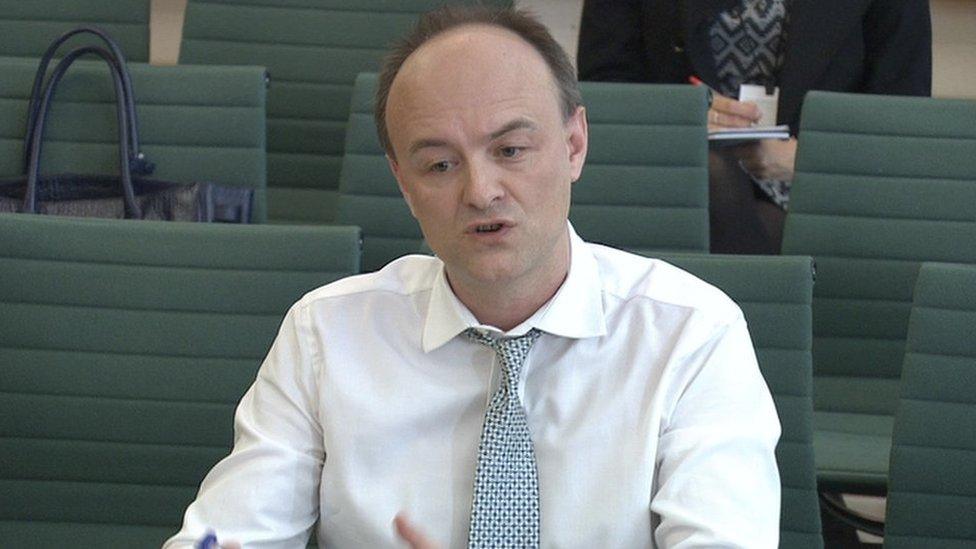
- Published16 May 2018
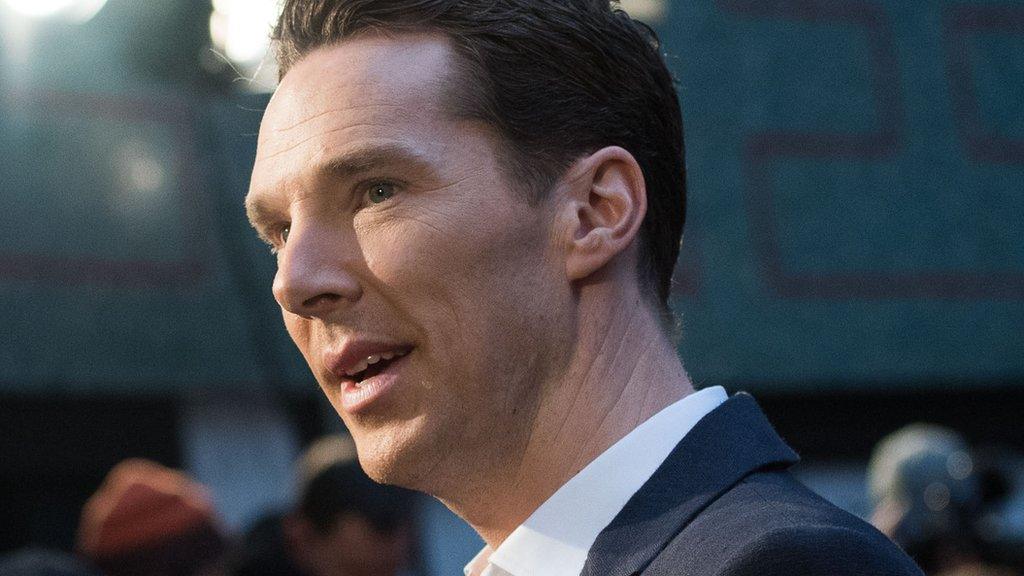
- Published4 July 2017
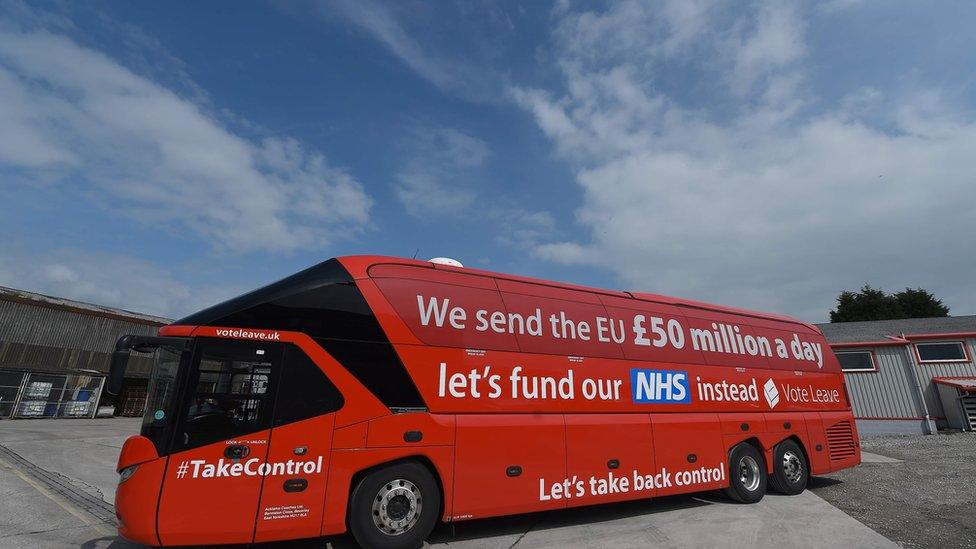
- Published1 December 2016
